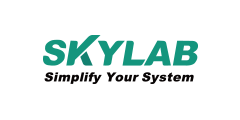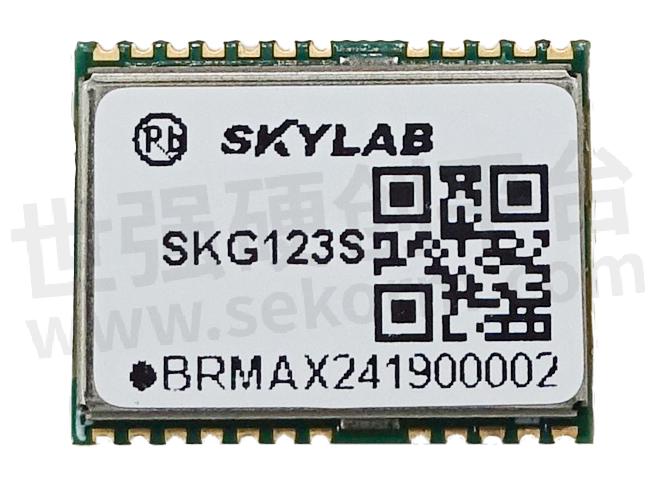The Difference between GPS Navigation Module and GPS Positioning Module

There are some differences between GPS Navigation Module and GPS positioning module in terms of functionality, application scenarios, and data processing. The following is a detailed introduction:
Functional Aspects
Core function: Mainly used to determine the geographical location coordinates of the device, that is, to accurately obtain information such as latitude, longitude, altitude, etc. of the current location of the device. It focuses on location determination, providing accurate location data to other devices or systems for basic operations such as location tracking and monitoring.
GPS Navigation Module
Core function: In addition to basic positioning functions, it focuses more on path planning and navigation guidance. It can calculate the optimal driving route based on the user's set starting and ending points, as well as some preference settings (such as shortest path, fastest path, avoiding congestion, etc.), combined with map data and real-time traffic information, and guide users to their destination through voice prompts, screen displays, and other methods.

In Terms of Application Scenarios
GPS Positioning Module
Asset tracking: widely used in the logistics industry to track the location of assets such as cargo transport vehicles and containers, ensuring the safety and timely delivery of goods. For example, logistics companies can improve transportation efficiency and management level by installing GPS positioning modules to monitor the real-time trajectory and location of vehicles.
Personnel positioning: commonly found in devices such as children's watches and elderly locators, it facilitates family members to know the location of children or elderly people at any time, ensuring their safety.
GPS Navigation Module
Car navigation: It is a common configuration in cars that provides accurate navigation guidance for drivers, helping them find the correct direction of travel on unfamiliar roads, avoiding getting lost and wasting time.
Outdoor sports: such as hiking, cycling, mountaineering, etc., GPS navigation modules can help enthusiasts plan routes, record itineraries, and provide rescue information when needed, ensuring their safety and smooth completion of activities.
In Terms of Data Processing
GPS Positioning Module
Data simplicity: Usually, it is only necessary to parse the received satellite signals, obtain location information, and output it in a specific format to other devices or systems. Data processing is relatively simple, mainly focusing on the accuracy and real-time performance of location.
GPS Navigation Module
Complex data: Not only do we need to receive and analyze satellite signals to obtain location information, but we also need to match and integrate them with map data, and perform complex path planning algorithm calculations. At the same time, real-time traffic information needs to be obtained in order to adjust navigation routes in a timely manner. Therefore, the amount of data processing is large, which requires certain requirements for the computing power and storage capacity of the module.
Hardware Design Aspect
GPS Positioning Module
Simple design: Generally speaking, hardware design is relatively simple, focusing mainly on the stability and accuracy of signal reception and processing. Usually, only basic components such as satellite signal receiving antennas, signal processing chips, and communication interfaces are required to meet the acquisition and transmission needs of location data.
GPS Navigation Module
Complex design: Due to the need to support functions such as map display and path planning, the hardware design is relatively complex. In addition to the basic GPS positioning components, a large capacity memory is also required to store map data, as well as a high-performance processor to run path planning algorithms and handle tasks such as map display. At the same time, it is also necessary to have a good human-computer interaction interface, such as a display screen, buttons, etc., for users to operate and view navigation information.
- +1 Like
- Add to Favorites
Recommend
- Design Of Xinbole Products On GPS Positioning Module
- GPS Module in the Application of Vehicle Positioning and Navigation
- GPS01-TD Quad-mode GPS Module: A Comprehensive Solution for Quad-Mode GPS Positioning and Navigation
- How Does the GPS Module of SPI Interface Achieve Positioning?
- Differences and Applications of UWB Positioning Technology and GPS Positioning
- What Are The Application Scenarios Of GNSS Positioning Module?
- Revolutionizing Positioning Technology: The RTK GPS Module
- SKYLAB launched a GPS positioning system solution for Logistics truck GPS Positioning Tracking Application
This document is provided by Sekorm Platform for VIP exclusive service. The copyright is owned by Sekorm. Without authorization, any medias, websites or individual are not allowed to reprint. When authorizing the reprint, the link of www.sekorm.com must be indicated.


















































































































































































































































































































































































































































































































































































































































































































































































































































































































































